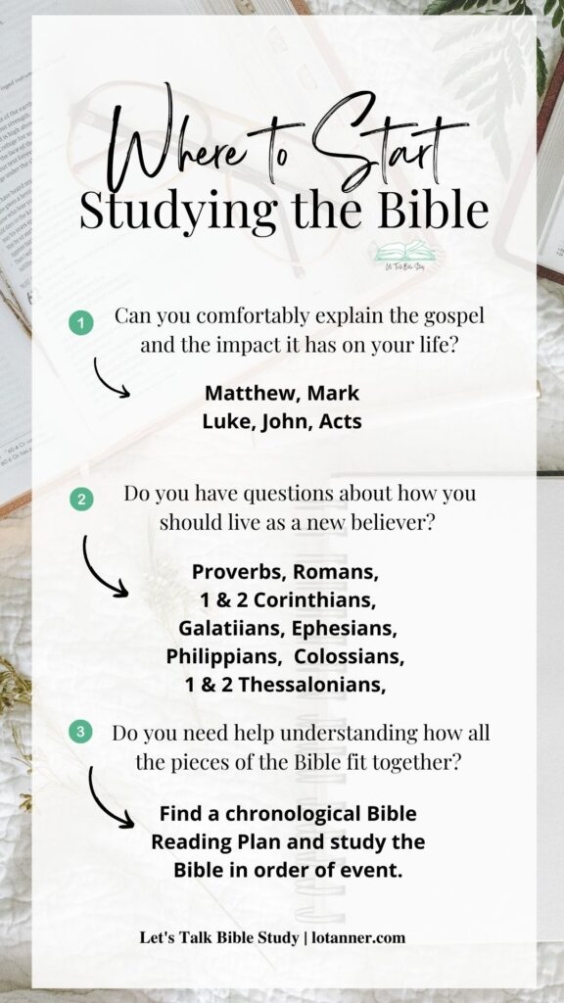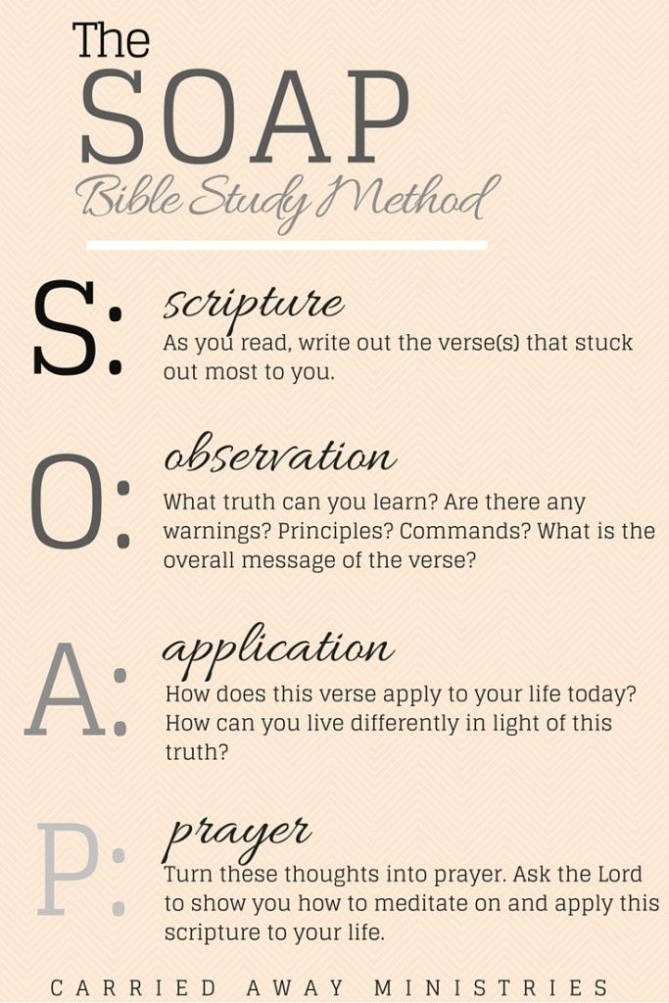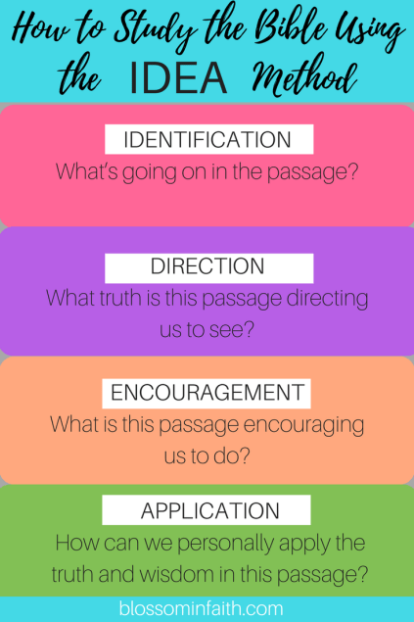how to Bible Study: A Comprehensive Guide
What do you mean by Bible Study?
Bible study is the practice of diving deep into the teachings and messages found in the Bible, a sacred text for Christians. It involves reading, reflecting, and analyzing the scripture to gain a better understanding of the teachings of Jesus Christ and the principles of Christianity. Bible study can be done individually or in a group setting, and is meant to deepen one’s faith and relationship with God.
How to Start Bible Study?

Image Source: lotanner.com
Starting a Bible study practice can seem daunting, but it is actually quite simple. The first step is to choose a Bible translation that is easy for you to understand, such as the New International Version (NIV) or the English Standard Version (ESV). Next, find a quiet and comfortable space where you can focus on reading and studying the scripture without distractions. You can start with a specific book of the Bible, such as the Gospel of John or the Book of Psalms, and work your way through it chapter by chapter.
What is Known about Bible Study?

Image Source: pinimg.com
Bible study has been a common practice among Christians for centuries, dating back to the early days of the Church. It is believed to have originated with the Jewish tradition of studying the Torah, the first five books of the Old Testament. Over the years, Bible study has evolved to include various methods and techniques, such as verse-by-verse analysis, thematic study, and historical context study. Today, Bible study is a popular practice among Christians of all denominations, who seek to deepen their understanding of the scripture and grow in their faith.
Solution to Effective Bible Study

Image Source: i0.wp.com
There are several key principles to keep in mind when engaging in Bible study to make it more effective. First, approach the scripture with an open heart and mind, willing to learn and be challenged by what you read. Second, pray for guidance and wisdom before you begin studying, asking the Holy Spirit to illuminate the meaning of the scripture for you. Third, take notes as you read and study, jotting down key verses, insights, and questions that arise. Finally, seek out resources such as commentaries, study guides, and online tools to help deepen your understanding of the scripture.
Information on Different Bible Study Methods
There are several different methods and approaches to Bible study that you can explore to deepen your understanding of the scripture. Some common methods include:
Verse-by-verse study: This method involves reading and analyzing the scripture one verse at a time, focusing on the meaning of each individual verse and how it relates to the larger passage.
Thematic study: This method involves studying a specific theme or topic found throughout the Bible, such as love, forgiveness, or salvation, tracing its development and significance across various passages.
Historical context study: This method involves exploring the historical and cultural background of the scripture, including the authorship, audience, and context in which it was written, to gain a deeper understanding of its meaning and significance.
How to Bible Study in a Group Setting
Bible study can also be done in a group setting, which can be a great way to learn from others, share insights, and grow in community. To start a Bible study group, find a few like-minded individuals who are interested in studying the scripture together, choose a specific book or topic to study, and set a regular meeting time and place. During the study sessions, take turns reading and discussing the scripture, asking questions, and sharing personal reflections and insights. You can also incorporate group activities such as prayer, worship, and fellowship to deepen your bond and enhance your study experience.
Tips for Effective Bible Study
Here are some tips to help you make the most of your Bible study experience:
Set aside dedicated time each day or week for Bible study, and stick to a regular schedule to build consistency and discipline in your practice.
Use a study Bible or online resources to help you understand difficult passages and concepts, and gain insights from commentary and historical context.
Pray before you begin studying, asking for guidance, wisdom, and understanding from the Holy Spirit to help you interpret and apply the scripture to your life.
Engage with the scripture through reflection, meditation, and prayer, allowing the words and teachings of the Bible to sink deep into your heart and transform your life.
Conclusion
In conclusion, Bible study is a valuable practice for Christians seeking to deepen their faith, grow in their relationship with God, and understand the teachings of the scripture. By approaching the Bible with an open heart and mind, seeking guidance from the Holy Spirit, and exploring different methods and resources, you can enhance your understanding and appreciation of the scripture and apply its timeless truths to your life. Whether you study individually or in a group setting, Bible study can be a rewarding and enriching experience that leads to spiritual growth and transformation.
FAQs
1. How often should I study the Bible?
It is recommended to study the Bible daily, even if it is just for a few minutes. Consistency is key to building a strong foundation of faith and knowledge of the scripture.
2. What is the best time of day to study the Bible?
The best time to study the Bible is whenever you can set aside dedicated and uninterrupted time to focus on reading and reflecting on the scripture. Some people prefer to study in the morning to start their day with a spiritual foundation, while others find studying in the evening to be a peaceful way to wind down and reflect on the day.
3. How can I stay motivated to study the Bible regularly?
To stay motivated to study the Bible regularly, set specific goals and intentions for your study practice, such as completing a specific book or topic, memorizing key verses, or journaling your reflections. You can also find an accountability partner or join a Bible study group to stay motivated and accountable in your study journey.
4. What should I do if I don’t understand a passage or concept in the Bible?
If you come across a passage or concept in the Bible that you don’t understand, don’t be afraid to ask questions, seek guidance from a pastor or mentor, or consult resources such as commentaries, study guides, and online tools to gain clarity and insight. Remember that it’s okay to not have all the answers, and that studying the Bible is a lifelong journey of learning and growth.
5. Can I study the Bible without any prior knowledge or experience?
Yes, anyone can study the Bible, regardless of their prior knowledge or experience. The important thing is to approach the scripture with an open heart and mind, willing to learn and be transformed by the teachings of the Bible. You can start with simple study methods and gradually deepen your understanding and knowledge as you continue to study and grow in your faith.
6. Is it okay to use study aids and resources when studying the Bible?
Yes, it is perfectly okay to use study aids and resources when studying the Bible, such as study Bibles, commentaries, concordances, and online tools. These resources can provide valuable insights, explanations, and context to help you understand difficult passages and concepts, and deepen your appreciation of the scripture.
7. How can I apply the teachings of the Bible to my daily life?
To apply the teachings of the Bible to your daily life, reflect on the scripture, pray for guidance and wisdom, and seek opportunities to practice what you have learned in your interactions with others. Look for ways to live out the values and principles of the Bible, such as love, compassion, forgiveness, and humility, in your relationships, work, and community, and allow the teachings of the Bible to guide and shape your thoughts, words, and actions.
how to bible study









